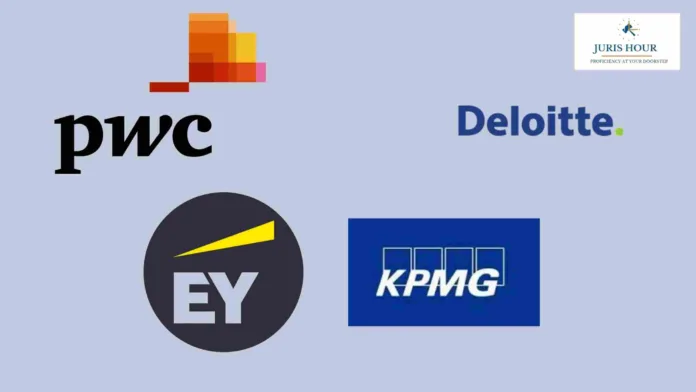The global professional services industry is witnessing a profound transformation as criminal lawyers emerge as central figures within the Big Four – Deloitte, PwC, EY and KPMG – traditionally dominated by accountants, MBAs and financial consultants.
In an era defined by cross-border regulation, aggressive financial scrutiny and heightened state surveillance, firms are recognising that compliance is no longer only about balancing ledgers or filing returns. Instead, it requires a deep understanding of procedural fairness, evidentiary rules, and constitutional safeguards – expertise that criminal lawyers are uniquely equipped to provide.
From Accountants to Advocates
For decades, corporate tax and compliance practices were viewed as the exclusive domain of chartered accountants and management consultants. But Sections 288 of the Income Tax Act, 1961 and 30 of the Advocates Act, 1961 make it clear that advocates are equally entitled to represent clients before tax authorities and courts.
Legal experts point out that criminal lawyers add a crucial dimension: the ability to frame tax not just as a fiscal duty but as a constitutional issue. In disputes involving retrospective taxation, GAAR, or faceless assessment irregularities, they raise challenges rooted in Article 14 (equality before law), Article 19(1)(g) (right to trade) and Article 265 (no tax without authority of law).
Moreover, many tax violations carry penal consequences under Sections 276 to 278 of the Income Tax Act. These require defence strategies based on mens rea, burden of proof, and evidentiary rules—skills that accountants often lack.
The Shield of Legal Privilege
A critical advantage criminal lawyers bring to the corporate table is legal privilege. Sections 126–129 of the Indian Evidence Act, 1872 protect confidential communications between advocates and clients—an immunity not available to accountants or consultants.
In high-stakes investigations by the CBI, ED, SFIO or state economic offences wings, this privilege ensures that sensitive disclosures remain protected. Analysts say this makes lawyers indispensable during voluntary disclosures, internal probes, or dawn raids.
Corporate Forensics with a Legal Edge
The traditional scope of forensic accounting—tracking anomalies and fraud—has expanded into digital forensics, seizure protocol compliance, asset tracing and cybercrime response. Criminal lawyers bring expertise in admissibility of evidence, Section 65B certifications, and constitutional protections during searches, giving them an edge over purely financial experts.
Big Four teams are increasingly relying on them for:
- Internal investigations after whistleblower complaints
- Anti-bribery and anti-corruption due diligence
- Data breach and cybercrime advisory
- Drafting responses to summons and regulatory notices
Barriers and Calls for Reform
However, regulatory barriers remain. Rule 49 of the Bar Council of India Rules bars advocates from full-time salaried employment while retaining the right to practice law. This has complicated the integration of criminal lawyers into global consulting firms.
Experts argue the rule is outdated. The Supreme Court’s observations in Bar Council of India v. AK Balaji (2018) opened the door for foreign law firms to provide non-litigation services. Industry voices now call for similar reforms allowing criminal lawyers structured roles in consulting, with safeguards to maintain professional independence.
The Road Ahead
Policy think tanks and academics have proposed a reform blueprint that includes:
- Amending Rule 49 to permit regulated employment in multidisciplinary firms
- Creating specialised postgraduate programs in legal forensics and white-collar crime
- Certifying professionals in cyber law, compliance and financial offences
- Clarifying the scope of legal privilege for in-house and advisory lawyers
The New Corporate Sentinels
The shift is not merely theoretical. With governments worldwide intensifying enforcement under frameworks such as FATF, FCPA, GDPR and India’s evolving data protection and anti-corruption laws, criminal lawyers are increasingly positioned as “corporate sentinels.”
“They are no longer just courtroom litigators,” said a senior partner at a global firm. “They design internal controls, ensure constitutional defensibility of compliance frameworks, and stand between corporate liberty and state coercion.”
As regulatory landscapes blur the line between civil non-compliance and criminal misconduct, experts believe the presence of criminal lawyers in corporate advisory is no longer optional—it is essential.
Read More: Gujarat High Court Orders Arrest of Foreign Vessel on Non-Working Court Day Over Unpaid Bunker Dues

